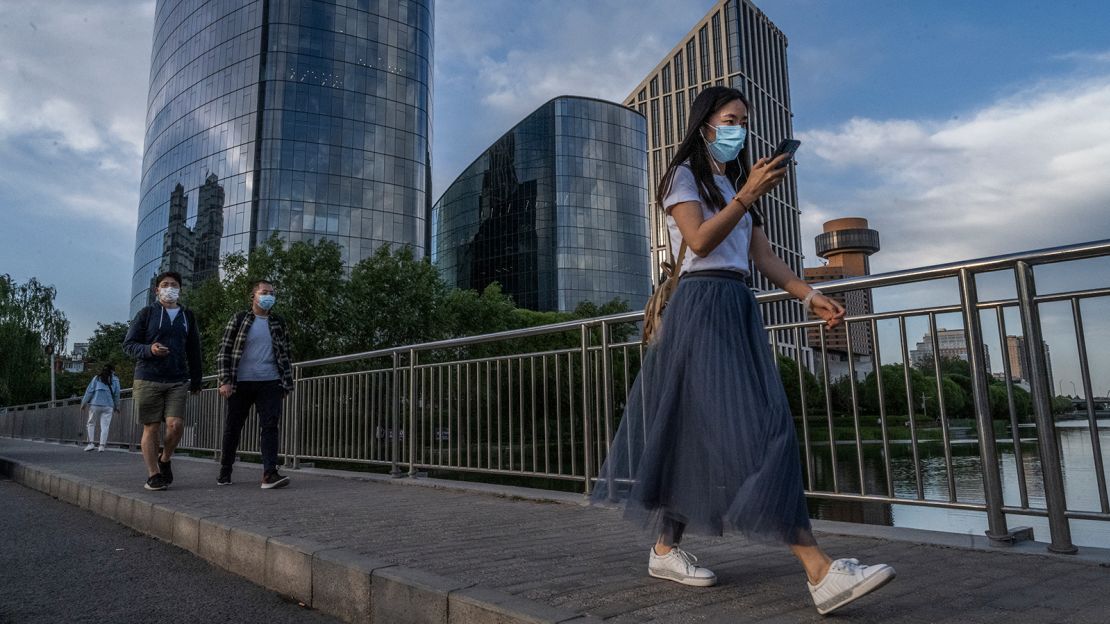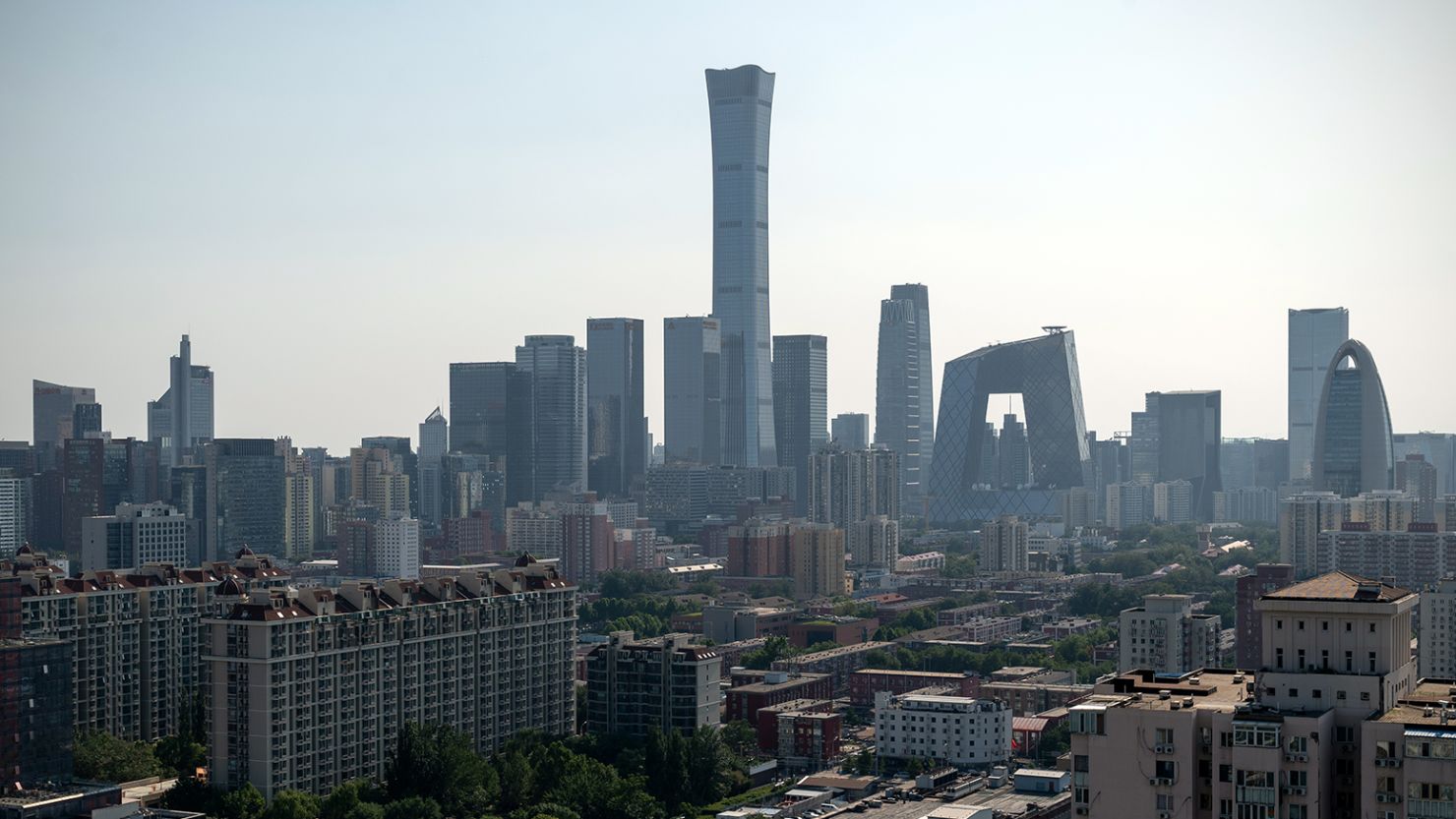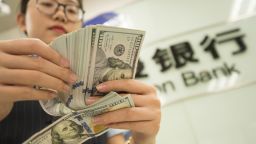Business leaders in China are under immense pressure, as the country’s leader Xi Jinping intensifies a regulatory crackdown on companies and strengthens its control of the economy.
This year, more than a dozen top executives from sectors including technology, finance and real estate have gone missing, faced detention or been subjected to corruption probes.
Even international consulting firms have been caught up in the sweep. They face rising risks, including the possibility of police raids and detentions of staff, in the world’s second largest economy.
The crackdown, driven by the Communist Party’s desire for control and its heightened concerns about national security, has continued even though the Chinese economy is on wobbly ground with private investments plunging since June.
Even though Beijing has sought to reassure entrepreneurs and foreign investors that China is open for business, experts say the steady stream of investigations — including cases of detention — are unsettling executives.
“Over the last decade, China has entered a new phase of regulatory control over the private sector and foreign investors,” said Doug Guthrie, a professor and the director of China Initiatives at Arizona State University’s Thunderbird School of Global Management.
“The message was clear: Regardless of global financial status, if you are a Chinese company, you will work with the Chinese government first and foremost; and if you do not, you will suffer significant consequences,” Guthrie added.
A sudden disappearance
Just this week, the Cover News, a state-owned media outlet, reported that the founder and CEO of DouYu, a Chinese live-streaming service backed by Tencent, had been unreachable in recent days, citing unconfirmed reports that he was being investigated.
It didn’t say which authorities were behind the possible investigation.
Another state-owned outlet, the Paper, reported that Chen had been missing since October.
A DouYu spokesperson told CNN that its “business operations remain normal,” adding that it would announce “any significant news or material activities” in a “timely manner.”
Chen’s disappearance came five months after the Cyberspace Administration of China launched an onsite inspection of Douyu to investigate what it called “serious” problems related to the platform, including alleged pornography and “vulgar” content, according to a May statement from the internet watchdog.
Another executive, Zhao Bingxian, a business man dubbed “China’s Warren Buffett” because of his reputation for making lucrative investments, was detained by authorities, his company, Wohua Pharmaceutical, said on Monday.
Zhao was assisting supervisory and anti-corruption agencies in investigations, the Shenzhen-listed company said in an exchange filing, without elaborating. The investigation was not related to the company, it said.
Zhao is chairman of Wohua Pharmaceutical and several other listed companies. A former banker, he has invested in a series of Chinese companies since 2000 and brought their shares to the public markets in mainland China and Hong Kong.
Earlier this year, Chinese officials had signalled that they would wind down their campaigns against tech and financial companies as part of a policy shift intended to focus on economic growth.
But Guthrie said this type of “aggressive corporate governance” was still going on and would continue into the future.
“Beijing will use selective cases to send signals to the market that behaviours and practices that do not fit with the central government’s goals will not be tolerated,” he said. “The cases of DouYu and Shandong Wohua are very clearly part of this continuing trend.”
Other top business leaders have also been facing scrutiny.
In a brief statement on Wednesday, the Central Commission for Discipline Inspection (CCDI) and the National Supervisory Commission said Zhou Zheng, former deputy general manager of COFCO Group, China’s largest state-owned food manufacturer and processor, was being investigated.
Zhou was “suspected of seriously violating rules and laws,” the two anti-corruption watchdogs said, without giving further details.
The probe into Zhou follows a similar investigation into Zhang Hongli, a former senior executive at the Industrial and Commercial Bank of China, one of China’s “Big Four” lenders, according to the CCDI.
Bao Fan, a star investment banker and tech dealmaker, was also caught up in the sweep. In May, Chinese state media reported that Bao had been in the custody of the anti-graft agency since his disappearance in February.
So far this year, the commission has already investigated more than a dozen senior executives at the country’s most important financial institutions, according to a previous CNN analysis of statements posted on the CCDI’s website.
No end in sight
The crackdown this year has spooked the business community in China, but it is not unfamiliar. Xi launched a sweeping regulatory crackdown on the private sector in 2020, which wiped trillions of dollars off the market value of Chinese companies worldwide. Five years earlier, there was a spate of top executives going missing.
The decline in business sentiment is apparent. Recent official data showed that private sector investment had dropped 0.6% in the first nine months of this year, compared to growth of 7.2% growth in the state sector.
In the third quarter, a gauge of foreign direct investment slipped into negative territory for the first time since 1998, underscoring the outflow of capital.
Beijing has rolled out a spate of measures to try to restore confidence, including a 31-point plan in July pledging to improve the business environment, but experts say those may not be enough to undo the damage.

The latest cases of missing or detained executives will not boost investors’ sentiment.
“For foreign companies that are largely trying to gain access to China vast consumer markets, and in particular attempting to do so through closely regulated sectors — namely, technology, finance, and education — some will undoubtedly be scared away,” Guthrie said.
Mauro Guillen, a professor of multinational management at the Wharton School of the University of Pennsylvania, said it will further harm China’s investment outlook.
Global investors are already weary about rising tensions between China and the West, as well as the country’s sluggish growth and large corporate debt, he said.
“President Xi is prioritizing geopolitical influence over the economy, not fully realizing that you need a strong economy to have influence in the world,” Guillen said. “[He] should focus on growth for a couple more decades.”






